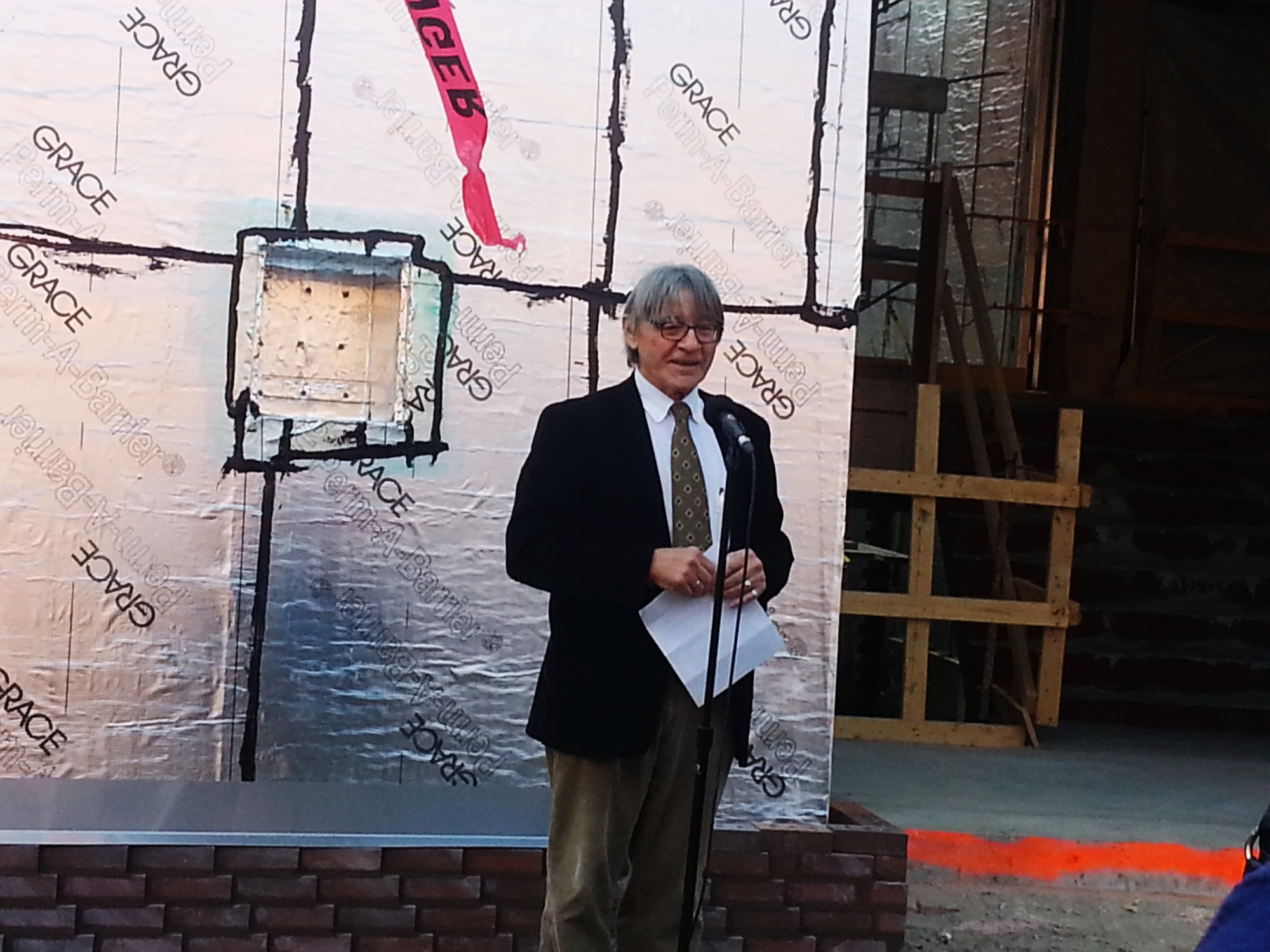
News
Summers Will Not Finish Semester of Teaching as Harvard Investigates Epstein Ties

News
Harvard College Students Report Favoring Divestment from Israel in HUA Survey

News
‘He Should Resign’: Harvard Undergrads Take Hard Line Against Summers Over Epstein Scandal

News
Harvard To Launch New Investigation Into Epstein’s Ties to Summers, Other University Affiliates

News
Harvard Students To Vote on Divestment From Israel in Inaugural HUA Election Survey
Anthropology Department Makes Time Capsule

One hundred years from Thursday, future Harvard administrators will have the opportunity to open up a time capsule from the year 2013, which will contain—amongst other objects—a used Post-it pad, a first-generation iPhone, Wednesday’s edition of The Crimson, and a can of Coke Zero.
Faculty and staff from the anthropology department celebrated the installment of the time capsule on Thursday afternoon at the main entrance of Tozzer Library. About 50 Harvard affiliates attended the ceremony, including Faculty of Arts and Sciences Dean Michael D. Smith and Dean of Social Science Peter V. Marsden.
Karen Santospago, anthropology communications and design coordinator, said the time capsule marks an important moment in the history of the anthropology department, which has recently expanded its academic program and will soon transfer to a new building. The social anthropology branch will move to Tozzer—which is currently under construction—in the fall of 2014.
“I think it’s a good opportunity to sort of document this moment in anthropology and campus life, to be looked at, you know, a hundred years from now,” Santospago said.
Celia Kent, planning director at the Office of Physical Resources, and John F. Hollister, the Office’s senior capital project manager, first brought up the idea of a time capsule about a month and a half ago, according to anthropology chair Gary Urton.
“[Hollister] forwarded me an article about a recent project somewhere where they had opened a time capsule from a hundred years before, and so I thought, ‘How cool is that?’ especially given that it’s the anthropology department,” Kent said.
According to Santospago, contributions to the time capsule ranged from academic material—like journal articles, books, and syllabi—to objects representing college life, like campus maps and dining hall menus. And of course, the Coke Zero can.
Matthew Liebmann, an associate professor of anthropology who brought the can, said he purposefully left it empty so it wouldn’t explode and ruin the other documents. Liebmann added that he took into consideration the message the Coke would send.
“I wanted an artifact that was clearly from 2013 that most people would’ve considered trash, but says something about the society we live in,” he said.
The department also contributed a flash drive that would contain the anthropology website, Santospago said, “which of course will be a curious object a hundred years from now.”
Jason A. Ur, an associate professor of anthropology who donated a handheld GPS device to the capsule, also remarked on the significance of the act. Ur said the “direct message” of the capsule contrasted with the “highly fragmentary data” archaeologists usually work with.
“It’s a fun thing,” he said, “and it kind of works well with what we do as archaeologists.”
During the ceremony, Marsden invited all the attendees to join him in a hundred years when the time capsule is opened.
But, Marsden added, “in archaeological time a hundred years is a blink of an eye.”
—Staff writer Francesca Annicchiarico can be reached at fannicchiarico01@college.harvard.edu. Follow her at @FRAnnichiarico.
—Staff writer John P. Finnegan can be reached at johnfinnegan@college.harvard.edu. Follow him at @finneganspake.
This article has been revised to reflect the following correction:
CORRECTION: Oct. 21, 2013
An earlier version of this article incorrectly stated the date on which future Harvard administrators will open the Anthropology Department’s planted time capsule. In fact, they will open it on Oct. 17, 2113, not Oct. 18, 2113.
Want to keep up with breaking news? Subscribe to our email newsletter.
